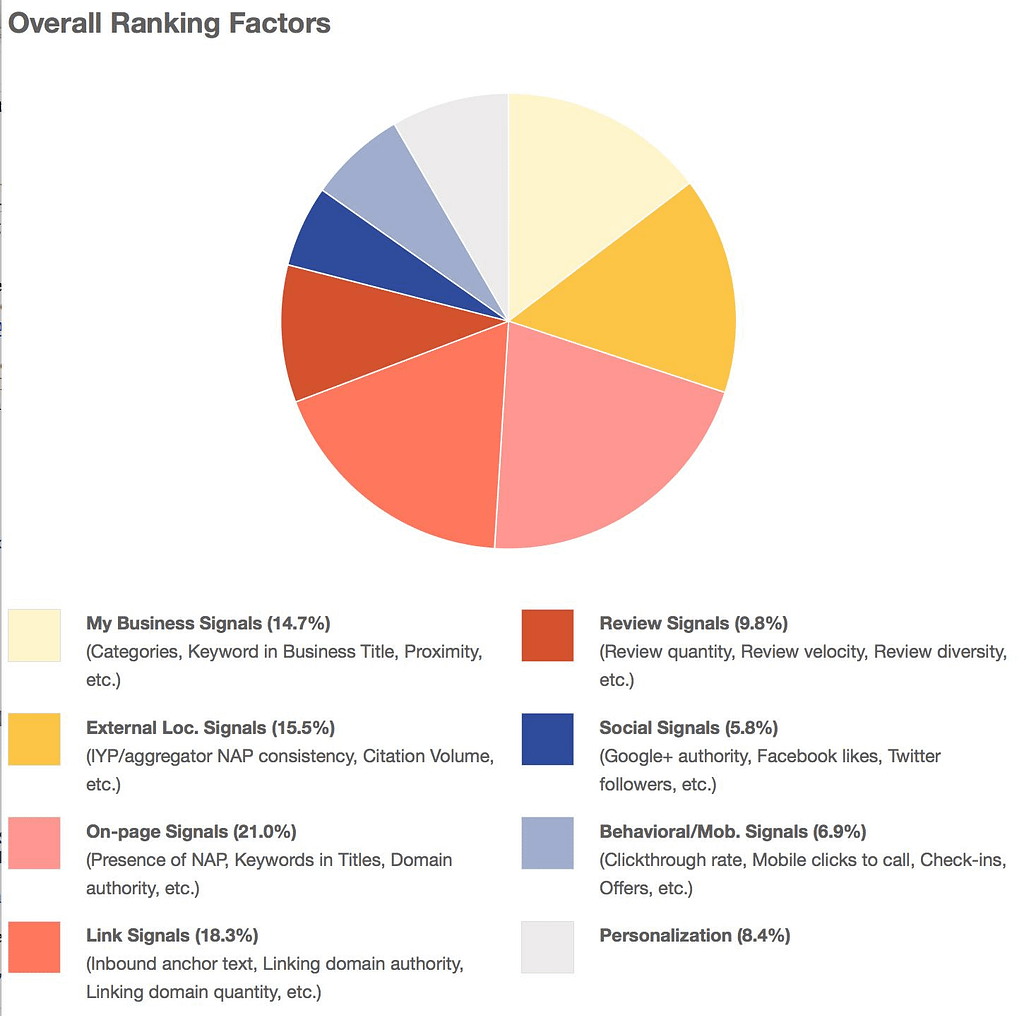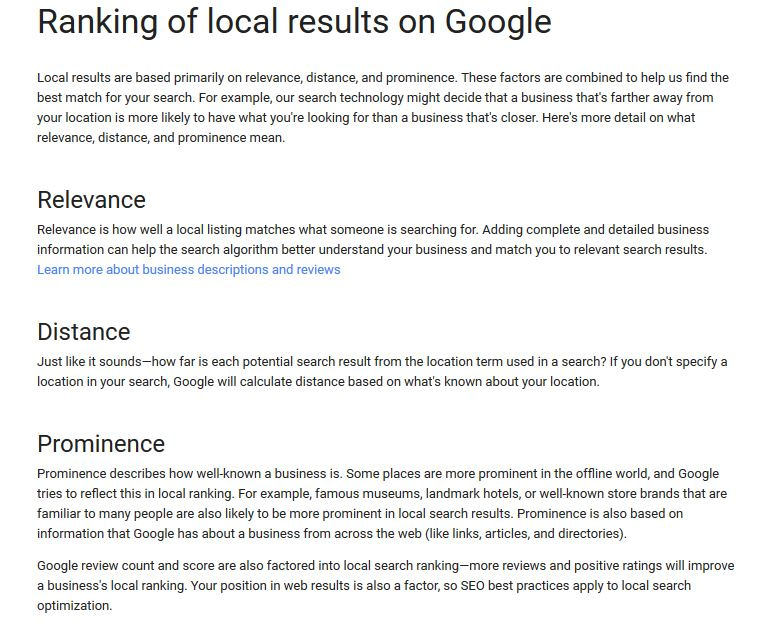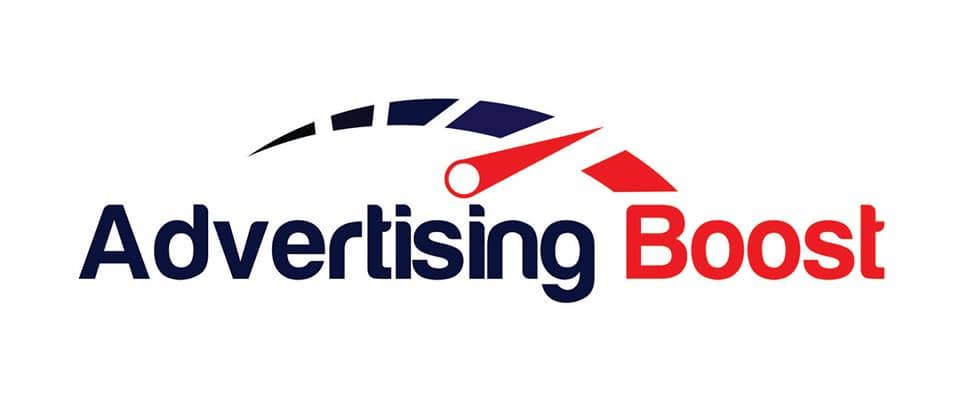Every day, small business owners are looking for ways to the get new customers. One of the ways they accomplished this is by asking for referrals and trying to get word of mouth business from existing customers. Word of mouth is still extremely valuable but the internet allows customers to refer your business outside of their own social circle by leaving you a positive review online. What you might not know is that the act of the customer leaving you review can actually help your local seo!
Moz.com conducted a survey involving hundreds of internet marketers to determine which were the most important rankings factors for local search results. Google has a much simpler answer to the same question but since search engines keep their algorithms a secret, the Moz study is extremely valuable.
Below is a list of what hundreds of marketers felt were the local search ranking factors in order of importance. I will list the top 15 factors with a brief explanation but the whole list of 49 factors can be found in the link I provided in the paragraph above.
Top 15 Google Local SEO Factors
- Physical Address in the City of the Search (where your business is physically located)
- Consistency of structured Citations (All your info is the same in business directories etc..)
- Proper GMB Category Associations (The Category you chose when setting up your Google My Business page)
- Proximity of Address to point of search (Where your customer is located when they search)
- Quality/Authority of Structured Citations (How important Google perceives the sites to be that have your Citations)
- Domain Authority of Website (How important Google thinks YOUR site is)
- Product / Service Keyword in GMB Business Title (Your Service in the title of your Google Business page)
- City, State in GMB Landing Page Title ( City/State in Google Business page and your website homepage)
- HTML NAP Matching GMB Location NAP (Name/Address/Phone number on your site matching the Google listing)
- Click-Through Rate from Search Results (How often customers click on your site when they do find you)
- Quantity of Native Google Reviews (w/text) (How many reviews you have on your Google Business page)
- Quality/Authority of Inbound Links to Domain (Links from other important sites back to your website)
- Individually Owner-verified GMB Location (Owner verified the Google Listing)
- Quantity of Structured Citations (IYPs, Data Aggregators) (How many Citations)
- Quality/Authority of Inbound Links to GMB Landing Page URL (Important sites linking to your homepage)

Source: Moz.com
As you can see by the list above, simply having your Google My Business Page setup properly and matching the info on your website is of key importance. Next comes the quality and number of other sites giving you citations that also match your GMB listing. Reviews play a every important part as well, they influence the ranking signals sent to Google but they can also increase click through rates and conversions. Your future customers are more likely to visit your site and see your product offerings if you have several positive reviews for your business.
As a small business owner it is in your best interest to claim your GMB page and structure it correctly in order to set yourself up to potentially show up in local search results. Then you should be getting citations from various sites like Yelp, Yellow Pages, BBB and other quality business directories, taking care that all of your business info is accurate and consistent.
You should also be working on getting reviews from your best customers, remember what new potential customers might see can hurt your chances of landing them. Try not to let the vocal minority of customers who leave negative reviews damage your online reputation and local ranking results.
Once you have these factors covered you should start working on making your website an authority in your niche. One of the best ways to accomplish this is by starting a blog on your site and regularly posting helpful or interesting content on it. Google loves good quality content so you should too if you want to rank for your most important keywords.
Becoming an authority in your niche is not as easy as just creating content however, the popularity of your site is another key component. How does Google determine how popular your site is? Most experts agree that the quality/quantity of incoming links to your site is a key factor to determining your authority. An incoming link is text (or an image) that can be clicked on from one site that directs you to another website.
Local SEO does not have to be complicated
Local SEO does not have to be complicated, but just like with anything worth doing you have to put in time and effort if you really want to succeed. Below is a recap on where you should start and then you can build from there.
- Claim your Google My Business page and set it up correctly (Business Type, Category, Service in title etc..)
- Be consistent in your business listings (NAP, Name Address, Phone) on other sites
- Have accurate NAP on your own business website
- Get good reviews often from a variety of sources
- Create useful or interesting content on your site focused around your keywords and services
- Get your content linked to from social media, other niche websites, blogs, online magazines etc…
If you do these things you will be well on your way to getting noticed by search engines which leads to opportunities!



